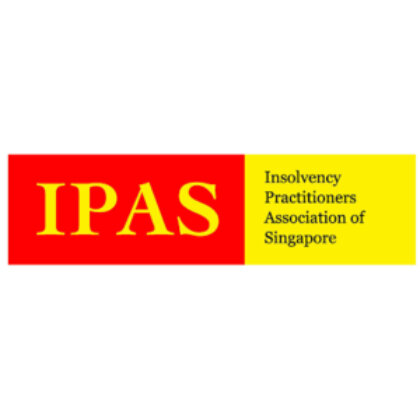
GST Filing Services
We provide a range of Filing services in Singapore for our clients. For a pricing quote for the services, please contact us for a more detailed discussion. The range of services we provide are:
IRAS Filing
Voluntary Registration
Mandatory Registration
Applying for Exemption
Quarterly Submission
Assisting in IRAS audits & investigations
Cancellation of Registration
What Is GST And Why Do I Need Filing?
GST is also known as Goods and Services Tax in Singapore. Businesses are liable for tariff registration when the annual revenue is more than S$1 million for the past year or can reasonably expect for the next year. Revenue refers to the value of goods and services sold by the company or individual.
A GST-registered business has a lot of responsibilities which include claiming and charging for tariffs, accounting, filing returns on time, keeping proper records, and disclosing prices inclusive of tariffs. Our professionals are well versed to handle registration, ensuring the accuracy and completeness of returns, and filing on time to avoid a GST late filing penalty.
GST Registration in Singapore
According to IRAS, registration is either a voluntary action or a mandatory requirement.
Businesses can register for tariffs voluntarily if their annual revenue is less than S$1 million. When a company's annual revenue surpasses S$1 million, it is required to register for tariff.
Once registered, you are considered a Singapore government tariff collection agency and must collect fees at their current rate. As of 2021, the prevailing rate is at 7% and is expected to rise soon.
Tariffs you collect are output tariffs, a form of taxation that you collect on behalf of IRAS. As a result, it must be paid to IRAS quarterly. Input tariff refers to the tariff paid on business purchases and other expenses relevant to the business. On the other hand, companies are eligible to claim input tariffs if certain conditions are met.
When to register your company for GST
Some turnover limits may make registering for tax compulsory. In other words, you must monitor your taxing data and reports and file for registration on time. Typically, there are two types of applications:
Mandatory registration
Typically, you must register for tariff if your taxable turnover exceeds S$1 million in the past 12 months. Logically, the opposite of the retrospective basis is the prospective one. It allows you to apply if you expect your business to exceed the limit in the next year.
In this regard, you should consider any business agreements and contracts that may bring in money to your business. Also, remember that when your revenue exceeds the limit, you need to submit an application within 30 days. Otherwise, the IRAS may strike you with penalties.
Voluntary registration
Of course, you can always choose to register for tariff after careful consideration voluntarily. In most cases, the majority of services and goods opt for taxing. Still, you must make sure you fit specific requirements. What’s more, a registration will mean you will have to file for tax for at least two years.
In other words, you will have to follow all standard regulations. Besides, you will have to maintain all records for at least five years, even if you close your company. To register, you will need to submit an F1 form and all the supporting documentation to the IRAS. If you’re operating a partnership business, you will have to submit an F3 form.
Files/Information Required for GST Registration
Form 5 GST Return to IRAS
OR e-filing via the IRAS website
Total Output Tax
Total Input Tax
Should the criteria be satisfied, for the first filing, businesses may also be eligible for a pre-registration Input Tariff.
After registering your company, you must submit your returns via the e-filing method quarterly. Even if your company has made no transactions, you must still file a "NIL" tariff return within one month from the quarterly cycle.
Failure to do GST e-filing for your returns is a severe offence. Hence, it will be helpful to have a professional advise you on these matters, to avoid legal punishments.
At Morrison Management, we advise our clients on the registration process to help them make the best-informed decision. We carefully weigh the merits and responsibilities of performing a voluntary registration and help you to figure out your Output and Input Taxes to make sure there are no gaps in accounting.
We also help you e-file your quarterly tariff filing and make the necessary GIRO payment to IRAS. To learn more about how we can help your company, simply book an appointment with us for a discussion.
GST Filing Guide
If you’ve already registered your business, you’ll need to submit an F5 form to the IRAS quarterly. While the task may sound a bit daunting, the department allows business owners to do IRAS GST filing electronically. Still, you must make sure you indicate a set of different parameters:
the total value of your international and local sales;
the value of your exports and purchases from other GST-registered companies;
total tariff collected;
total tariff claimed for the accounting period.
Also, make sure that you file the submission to the IRAS within 30 days after each business quarter. The rule applies even if you don’t have any taxes due. Failure to do GST return filing may result in penalties regardless of the type of net tariff declared. After doing a filing refund, you will receive the payment 30 days from the return receipt date.
About The Company
Our Mission
At Morrison Consultants, our mission is to empower businesses by delivering comprehensive consulting services that ensure growth, efficiency, and compliance. Through innovative solutions, expert advice, and personalised services, we commit to helping our clients achieve their business and strategic goals.
Morrison Consultants is Singapore’s top-tier consulting service provider that offers comprehensive services across various industries. Founded in 1987 as Raffles Corporate Advisory Services, the company had established itself as an experienced corporate service provider in Singapore and the Philippines. In 2018, the company was re-branded as Morrison Management and continues to be a trusted partner for businesses, offering them expert guidance and innovative solutions to navigate the complexities of today’s dynamic market landscape.
At Morrison Consultants, we are a team of seasoned professionals who are experienced in providing comprehensive and personalised consulting services. Our team possesses strong backgrounds in finance, business management, and technology, which allows them to prioritise client success through tailored strategies and actionable insights. Each member of our team is committed to delivering excellence and building long-term relationships with our clients. We work closely with our clients and adopt a collaborative approach to understand their needs and challenges, which helps to tailor corporate solutions that drive results.
Why Choose Us?
Following are the reasons why you should choose Morrison Consultants for your corporate needs.
● Proven Track Record: We have more than a decade of corporate experience and successful consulting engagements with businesses of all sizes.
● Comprehensive Services: We provide a full spectrum of consulting services under one roof.
● Experienced Professionals: Our team comprises industry experts and qualified professionals dedicated to your success.
● Client-Centric Approach: We offer personalised services tailored to meet your unique needs.
● Legal Compliance: We strive to ensure that all your processes are compliant with the regulations and standards.
Our Services
Our Accolades
Frequently Asked Questions (FAQs) About GST Filing
-
When you operate a GST-registered pte ltd company, you must include the levy in the prices of your goods and services. While the tax isn’t an expense for the company, you should pay the collected tax back to the IRAS. Ultimately, this form of taxation goes down to the consumers indirectly, while the businesses serve as the middlemen. This structure is no difference between a sole proprietorship and Pte Ltd.
-
Undoubtedly, the most significant advantage is the lower prices for your goods and services. Since they’re directly correlated to the lower operating costs, the taxpayer is the consumer and not your business. What’s more, GST-registered companies seem a lot more legit to customers.
Another perk is that it taxes the self-employed workers only when they consume. There’s also a zero-taxation rate on savings and investment, encouraging people to save and invest more freely. Also, you can claim the incurred tariff on your purchases. That way, you’ll recover some of the expenses and thus lower the incurred costs.
-
As with any taxation system in the world, the Goods and Services Tax also has its downsides. Perhaps, the most evident is the administrative liability that will make you file tax reports every year. Let’s not forget that adding tax to your price tags will increase the selling prices of your products and services. In turn, some customers may not be pleased, especially if they’re not GST-registered themselves.













